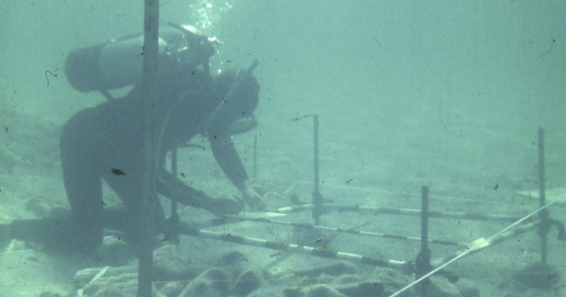Hartley News Online Your alumni and supporter magazine
Maritime archaeology at Southampton will be given a major boost thanks to a generous gift from the Honor Frost Foundation. This significant gift will support the creation of the Honor Frost Associate Professorship in Mediterranean Maritime Archaeology at the University of Southampton and help to drive forward research in this field.
Southampton enjoys a world-class reputation for research and teaching in maritime archaeology, and is one of the few institutions that offers a specific focus on the Mediterranean. The post funded by the Honor Frost Foundation will strengthen and expand this research, allowing the team to advance our knowledge of Mediterranean maritime archaeology even further.
Research in the Mediterranean is particularly crucial due to its historical significance for connectivity by sea, which stretches back at least as far back as the Neolithic era, some ten thousand years ago. Boats, seafaring and maritime exchange were critical to the development of this region through the Greek and Roman civilisations and beyond.
Honor Frost was a pioneer in the field of underwater archaeology, who led many Mediterranean archaeological investigations. After her death in 2010, the Honor Frost Foundation was established to promote marine and maritime archaeology, with a focus on the eastern Mediterranean.
Alison Cathie, Chair of Honor Frost Foundation, said, “It was Honor’s express wish that the Foundation set up in her name should support education and research in the field of maritime archaeology in the eastern Mediterranean. With this gift, we are delighted that we can play our part in ensuring this will continue to develop and flourish at Southampton, an acknowledged centre of excellence.”
Professor Mark E. Smith, President and Vice-Chancellor, said, “We are so grateful to the Honor Frost Foundation for its support. Philanthropy makes remarkable things possible at our University and the Foundation’s support is a significant vote of confidence in world class archaeological research and teaching at Southampton.”
Professor Alistair Pike, Deputy Head of the Archaeology Department, said, “This generous donation from the Honor Frost Foundation represents an exciting opportunity to expand our research in the maritime archaeology of the Eastern Mediterranean, and to ensure that Mediterranean maritime archaeology continues to be a world-renowned strength within Archaeology at Southampton for many years to come.”

